Country Louisiana
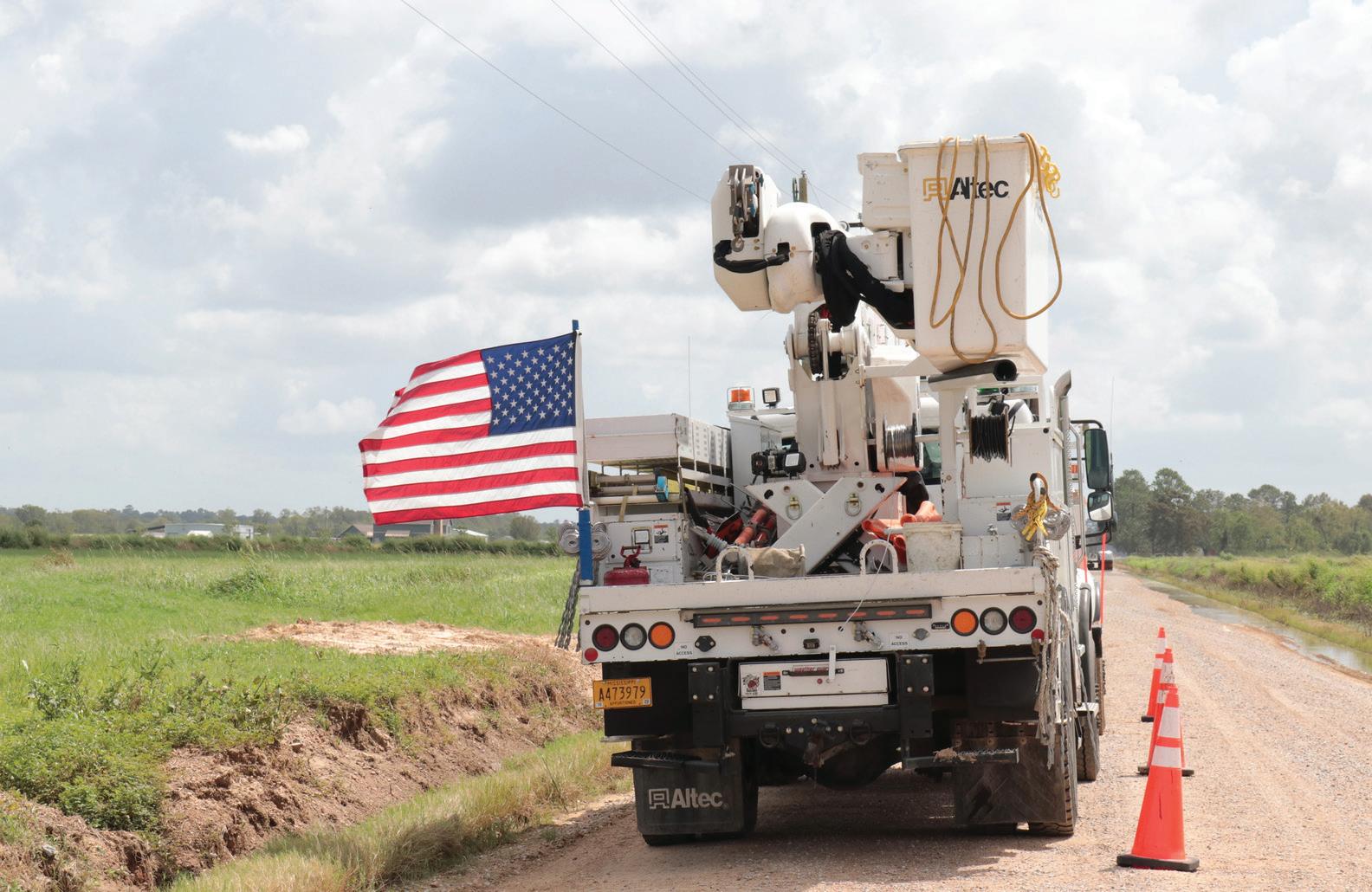
Be Ready for Storm Season






















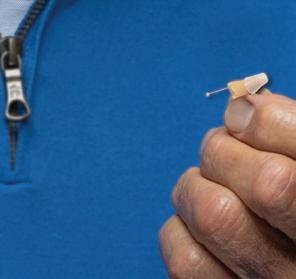

































































Essential tips to protect your family before, during and after the storm
Hurricane season has begun, with peak storm threat from mid-August to late October. Be prepared with these tips from ready.gov.
Know your risk. Learn how hurricane-force wind and water could affect where you live.
Make an emergency plan. Share it with everyone in your household.
Gather supplies. Include medication, disinfectants, cloth face coverings and pet supplies in your go-bag or car trunk.
Know your evacuation zone. You may need to leave quickly. Get warnings and alerts. Download the Federal Emergency Management Agency app and receive realtime alerts from the National Weather Service. Sign up for community alerts.
Keep disabilities in mind. If anyone in your household has special needs, determine if you may need additional help.
Review important documents. Make sure your insurance policies and identification are up to date. Make copies and keep them in a password-protected secure digital space. Strengthen your home. Declutter drains and gutters, bring in outdoor furniture and consider hurricane shutters.
Get tech ready. Keep your cellphone charged when a hurricane is in the forecast and buy backup charging devices. Help your neighbors. Check with those who may need help. Stay informed. Listen for emergency information and alerts. If told by local officials to evacuate, do so immediately. Protect yourself. During high winds and flooding, take refuge in a designated storm shelter or interior room on the highest level of the building. Don’t walk or drive through floodwaters. Just 6 inches of fastmoving water can knock you down. One foot can sweep your vehicle away. Stay off bridges.
Source: ESFI.org
COMMUNICATIONS COORDINATOR Conley Bourgeois
ACCOUNTING MANAGER Beth Fraser
Board of Directors
President Michael Heinen
Vice President Roger Dale DeHart
Secretary/Treasurer Richard Sitman



ALEC Members
BEAUREGARD
Mike Viator
CLAIBORNE
Mike Marcotte Lane Davidson
DEMCO
Daniel Berthelot Richard “Dickie” Sitman
JEFF DAVIS ELECTRIC COOPERATIVE INC.
Michael Heinen Byron Hardee SOUTH
Trevor Benoit Roger Dale DeHart
Joe Jarrell Dennis Glass
Associate Member

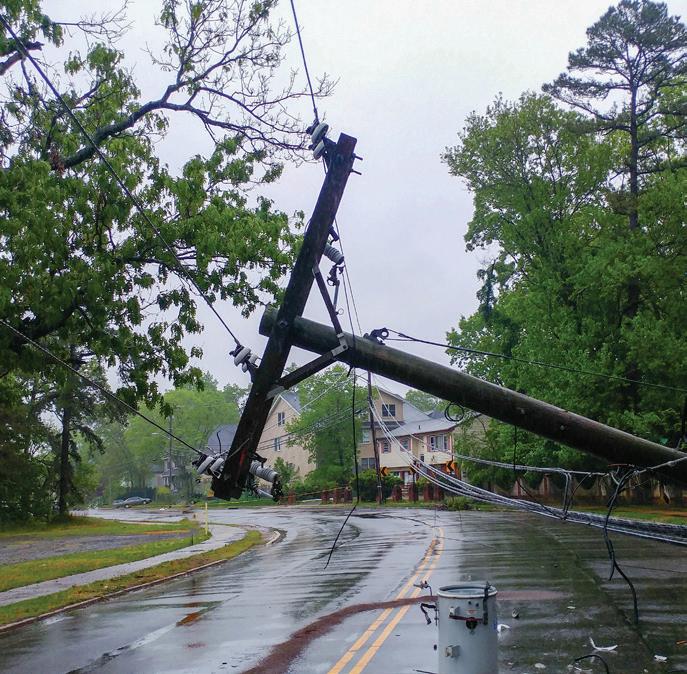


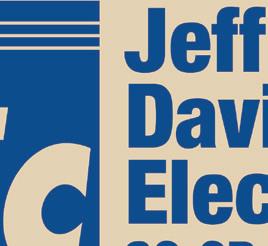


906 N. Lake Arthur Ave.
P.O. Box 1229
Jennings, LA 70546
337-824-4330 • 337-824-8936 (fax)
Branch office:
815 Highway 27, Bell City, LA 70630
337-598-5700
jdec.org
STAFF
Michael J. Heinen | CEO
Anya Killmer | Executive Assistant/ Benefits/HR
Eric Gautreaux | Chief Operating Officer
Tara Guinn | Chief Financial Officer
Cade Delcambre | Substations and Metering
Skyler Hebert | Office Manager
Ben Hetzel | Director of Safety/ Member Services
Brennon LaBouve | Engineering Manager
Heath Lemieux | Superintendent
Kain Miller | Superintendent, Jennings
Jonathan Nunez | Superintendent, Hackett
Wendell Thibodeaux | Purchasing Manager/ Warehouse
BOARD OF DIRECTORS
Joseph L. Tupper | President
Thomas Precht III | Vice President
John Berken | Secretary/Treasurer
James Doxey
Byron Hardee
Wilson Dean Landry
Reggie Murphy
Kevin Sonnier
Martin Zaunbrecher
Volume 42, Issue 4
Louisiana Country (USPS 473-180) is published bimonthly by the Association of Louisiana Electric Co-ops Inc., 10725 Airline Highway, Baton Rouge, LA 70816, in partnership with Pioneer Utility Resources.
Annual subscriptions: Members $2.59. Nonmembers $5.
Postmaster: Send form 3579 to 10725 Airline Highway, Baton Rouge, LA 70816.
Periodicals postage paid at Baton Rouge, Louisiana 70821, and additional mailing offices.
Did you know every cooperative is required to conduct an annual meeting of the membership? The purpose is to hold the election for the board of directors, share important financial information, occasionally vote on other matters such as bylaw changes and, of course, the great door prizes.
Jeff Davis Electric Cooperative’s annual meeting is a community gathering where neighbors meet new neighbors or catch up with old acquaintances. As our lives get busier with the “errands of life’’ and more of our interactions with others are online, often via social media, we must renew the value of face-to-face human connections. Very few organizations are uniquely positioned like JDEC to bring together members of our communities.

While rural Americans probably do a better job of staying connected to our neighbors (in part because we need to), it is not something we should take for granted. The simple act of smiling, saying hello and shaking someone’s hand lifts the spirits of both parties.
Our country and community face many challenges. Our economy feels as if it has been stagnant for years. Overcoming these challenges will only happen if we come together.
JDEC’s annual meeting is designed to take care of the important business of your co-op and the equally important business of building a real sense of community. All cooperatives serve an economic and social purpose. While safe, reliable and affordable electric power is crucial to our mission, improving the quality of life for all members is at the core of what we do every day.
If you have not attended the annual meeting in the past or if it has been a few years, we urge you to take the time to be with your fellow co-op members.
We get out of life what we put into it. JDEC is connected to you by more than just power lines. We are your neighbors, and we look forward to seeing you at your annual meeting July 14 at Jennings High School. Registration begins at 8 a.m. and ends at 10 a.m. when the meeting begins. We hope to see you there.




Annual Meeting of the Membership Monday, July 14
Registration opens at 8 a.m. Meeting begins at 10 a.m.


Jennings High School, 2310 N. Sherman St., Jennings, LA 70546



Hear reports about your cooperative, vote in elections, see informational presentations and have the chance to win prizes. We look forward to seeing you there.








By Sable Riley
The preamble to the Declaration of Independence, adopted by the Continental Congress on July 4, 1776, announced a brand-new nation’s belief that every individual has the right to life, liberty and the pursuit of happiness.
Thanks to the services provided by co-ops across the country, like Jeff Davis Electric Cooperative, Americans have the freedom to make their homes wherever their hearts desire without sacrificing modern conveniences and the latest innovations.





Being free to chase your dreams is a lot easier when you can do it with the peace of mind that comes with knowing you’ve taken precautions to protect your home and community from electrical hazards, outages and accidents.
Another important precaution is properly grounding electrical systems. Proper grounding prevents shocks and fires by safely directing electricity away from your home in case of a fault. It’s a practical investment that protects your family and property.











Being proactive about electrical safety in your home safeguards the well-being of your family and property, and reduces the likelihood you need to call for emergency services or other external help during an unexpected crisis.


































Modern surge protectors and advanced circuit breakers provide crucial protection from unexpected electrical surges. These tools safeguard electronics and appliances, keeping your household running smoothly during summer storms or unexpected electrical events.





Consider, for instance, the value of installing generator transfer switches. When severe weather knocks out power lines, these devices enable homeowners to safely switch from grid electricity to their generators without the risk of back-feeding electricity onto electric lines—a dangerous situation for our lineworkers.

Taking these practical measures ensures you’re prepared for any electrical safety challenge that might arise.
This Independence Day, as fireworks light up our skies and we gather with friends and family, let’s also take a moment to focus on safety. Being truly independent means being able to manage and overcome whatever challenges come your way.









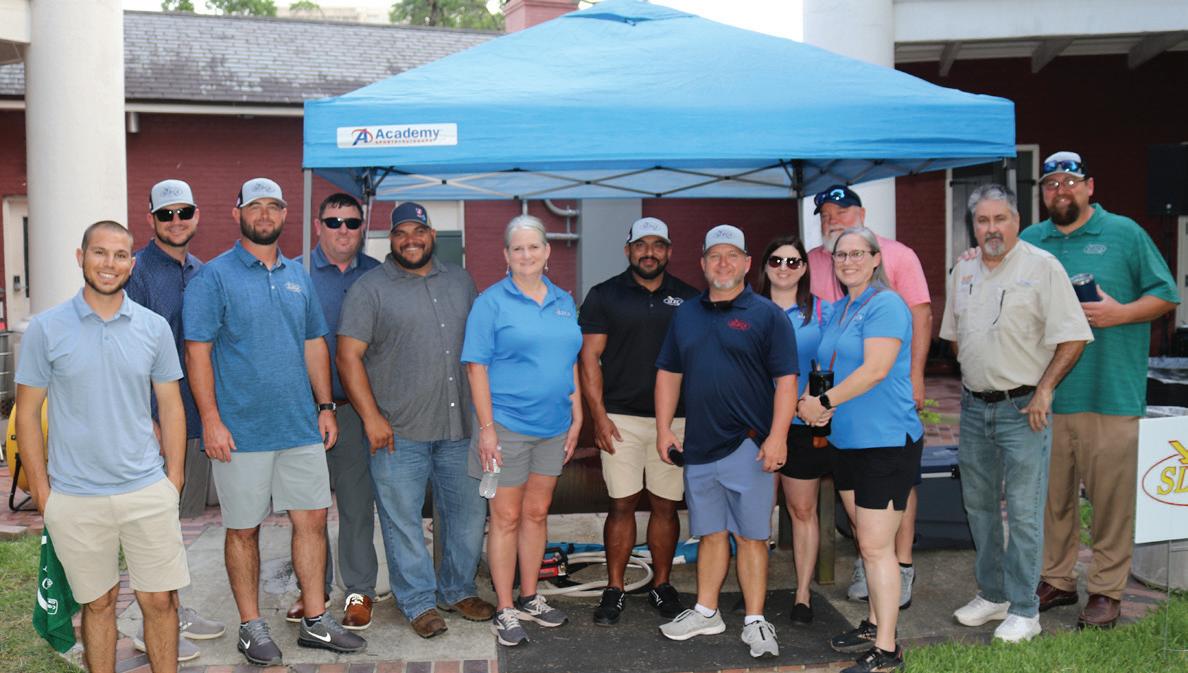




Association of Louisiana Electric Cooperatives and members hosted the Taste of Louisiana Cookout for elected officials. The afternoon was spent at the Capitol meeting with legislators and ended with some Louisiana home cooking.

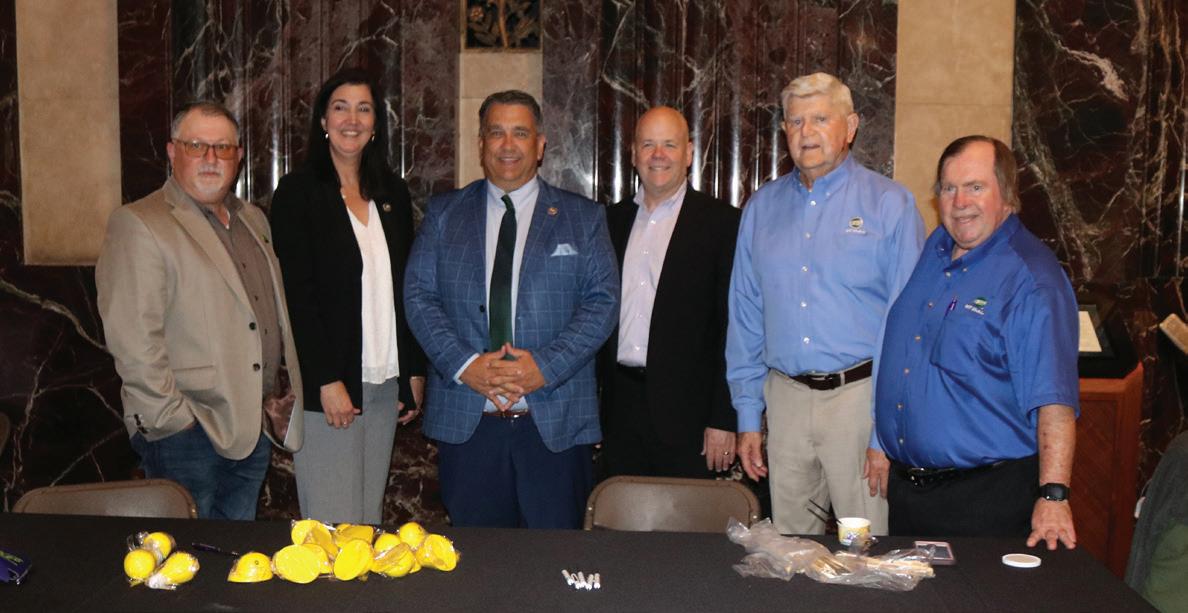















Louisiana electric cooperative leaders met in April with the state’s congressional representatives in Washington, D.C., to discuss topics important to the memberconsumers they serve. The visit coincided with the National Rural Electric Cooperative Association’s Legislative Conference, which welcomes cooperative grassroots advocates from across the country to the nation’s capital each year.







Outdoor water activities and electricity never mix because water is a powerful conductor of electricity. When electrical devices or cords come into contact with water— like at a pool, lake or beach—it can cause serious electric shocks. Keep all electrical items far away from water and always follow safety rules when you’re outside near water.
Read the sentences below, then unscramble the bolded letters to complete the safety tips.
1. Never touch electrical csevied, switches or plugs when your hands are wet.
2. Always place lacertceil items, like radios, speakers or lights, at least 10 feet away from the water’s edge.

3. After using outdoor electronics, ngulup them and store them away from water to prevent accidents.
4. Keep extension dsroc far away from water sources to prevent tripping hazards.
5. Always pay attention to “no wmsinimg” signs, whether at the pool, beach or lake.





































By Cheré Coen
It’s no surprise that Nadie Burrell learned to cook in her family’s kitchen. Louisiana is known for producing great cooks and chefs who began their careers at home, whipping up indigenous cuisine.
Nadie hails from a large family in Gray. Growing up, cooking wasn’t just a necessity—it was also an art form. She watched her grandfather cook outdoors, slaughtering hogs and producing pork products while her grandmother reigned over the kitchen. The couple had eight children and 20-plus grandkids, so food was a major part of their lives.


“It was a family love language,” Nadie says. “It was what we did when we got together. And there was a lot of us.”
Church was another place Nadie learned about good cooking. She mirrored the older ladies in the kitchen who never kicked her out.
“I lived in that kitchen,” she says.
Nadie moved to Houston in 2018 and decided to give her new community a taste of her home. Or HomeAh! as she named her new company, a play on words of the larger town near Gray.
Houston offered lots of opportunities for pop-up cooks such as herself, Nadie says. For instance, many bar and lounge owners wanted to provide their patrons boiled seafood but didn’t want the mess and liability of doing it in-house. Nadie would load up her car or a rented U-Haul with propane tanks, pots and ingredients and serve her boiled seafood on-site.
“I gave Houston a taste of my home,” she says.
Until COVID-19 hit, followed by Hurricane Ida.

Nadie worried her community back in Louisiana wasn’t getting the resources it needed, so she headed home. She opened a restaurant, called NadieB’s Taste of HomeAh, in a building in Gray where her grandmother used to work. It seemed appropriate.
“I saw there was a need to help my community,” Nadie says. “It just felt like I needed to come home.”
NadieB’s menu is diverse, featuring seafood boiled seasonally, and street food, like sandwiches and po’boys. Soul food dishes, like oxtail, smothered okra, and collard or mustard greens, are always part of the lunch special.
One of NadieB’s most popular sandwiches is the Bayou Club, which features fried shrimp and fish, lettuce, tomato, and grilled onion.
“It’s the perfect combination of simple things,” Nadie says.
Restaurant visitors also find shrimp pasta, red beans and rice, pork chops, chicken wings, crawfish mac and cheese, and fried fish, among other entrees. Nadie’s seafood rolls consist of Louisiana crawfish, shrimp and crabmeat that’s mixed with cheese, rolled up and fried like an egg roll.
“It’s pretty delicious,” Nadie says.
On Saturdays, NadieB’s serves breakfast from 8 a.m. to noon with a special price of $8 for seniors.
“We try to do this for our seniors, to give something back,” Nadie says.
Nadie offers her take on crawfish étouffée below.
NadieB’s Taste of HomeAh! is open 11 a.m. to 7 p.m. Tuesday through Friday and 8 a.m. to noon Saturday. The restaurant is at 3059 W. Main St. in Gray.
1 stick plus 4 tablespoons butter or ½ cup vegetable oil
1 clove minced garlic
Holy Trinity (½ cup each of chopped onion and bell peppe and 2 chopped celery stalks)
½ cup all-purpose flour
Seafood broth or stock
½ can Rotel tomatoes (hot or mild)
Louisiana crawfish tails
Cajun seasoning
Garlic powder
Onion powder
Chopped green onion
Louisiana rice
Add 4 tablespoons of butter or ½ cup vegetable oil to cast-iron skillet. Once hot, add garlic and the Holy Trinity. Cook vegetables until translucent, about 5-6 minutes. Remove from skillet and set aside.
Reduce heat to medium, and add 1 stick of butter to cast-iron skillet. Once melted, add flour. Use a whisk to combine butter and flour. Whisk until it is smooth and golden brown. This is called a blonde roux. Stir continuously, or the roux will burn.
Add seafood broth, whisking until it is smooth, until the roux’s consistency is to your liking. Add vegetables to the roux. Add half the can of Rotel tomatoes. Season to taste with Cajun seasoning, onion powder and garlic powder.
Add crawfish tails to the seasoned roux. Stir. Cook on medium heat for 8-10 minutes. Reduce heat to low and simmer for 5 minutes. Remove from heat, and top with green onions. Serve over hot rice.

From the earliest days of electricity, weather has presented the greatest challenge to electric grid reliability and safety. Severe thunderstorms, tornadoes, hurricanes, heat waves, heavy snowfalls, flooding and high winds have long tested power lines and electric utility crews across the country. But in Louisiana, hurricanes are known intimately—they’re not just statistics. They’re memories etched into communities. From Betsy in 1965 to Katrina in 2005, and more recently Gustav, Ike, Laura, Delta and Ida, each storm has revealed the vulnerability of electric infrastructure. If it seems like storms are becoming more frequent and intense, you’re not wrong. The National Oceanic and Atmospheric Administration, which tracks weather and climate disasters causing more than $1 billion in damage, reported an annual average of 18 such events between 2018 and 2022. That compares to an average of just 8.1 major disasters per year from 1980 to 2017, even after adjusting for inflation.
Louisiana has endured more than its share of these costly disasters. Hurricane Ida alone left more than 1 million Louisianans without power in 2021, with some rural areas remaining dark for weeks. Winds topping 150 mph turned everyday objects into projectiles and uprooted centuries-old live oaks that crashed into power lines.
While scientists and policymakers debate the causes of extreme weather, electric utilities are focused on preparing for it. Across the Bayou State, electric cooperatives take steps to harden the infrastructure that delivers electricity to homes, farms and businesses. This includes upgrading equipment and strengthening connections to the nation’s power grid to better withstand disasters.
Coastal parishes face unique threats—not just hurricane-force winds and rain but also storm surges that push saltwater miles inland. Salt left behind can corrode equipment and cause failures long after the storm passes. Additional strategies aim to prevent damage from happening in the first place.
You may have noticed an emphasis on tree trimming and vegetation management. Keeping branches a safe distance from power lines reduces outages caused by limbs falling during storms. In hurricanes, Louisiana’s beloved live oaks, cypress trees and even palm fronds become airborne hazards. After storms, crews often find massive limbs draped across power lines or entire trees tangled in transformers. It’s sad to see favorite trees trimmed, but many of the outages occur when trees tangle with power lines.
As drought conditions cause increased wildfire risks, even in places unaccustomed to them, these preventative efforts become even more important.
Grid hardening also involves inspecting poles and replacing weakened ones with more durable materials. If one power pole is damaged or otherwise weakened, strong winds might bring it down and leave a big area in the dark.
When crews aren’t fixing problems, they’re working just as hard to prevent them from happening. Those poles and the wires connecting them are frequent targets for lightning, so utilities install lightning arresters to divert surges caused by lightning strikes. Hurricane-spawned tornadoes and severe thunderstorms can produce intense lightning activity, making these protective systems essential for maintaining grid stability during dangerous storms.
Investments are being made in sophisticated management systems—what some call smart grid technology—capable of identifying and addressing issues before they become widespread outages. Automated devices like reclosers can isolate problems and maintain power in unaffected areas. These systems even help defend against outages caused by curious wildlife that may come into contact with equipment.
Advanced hurricane tracking from the National Hurricane Center in Miami allows Louisiana’s cooperatives to pre-position crews and equipment days before a storm makes landfall. For example, when Hurricane Francine approached the Louisiana coast, mutual aid crews from as far away as Arkansas and Texas were already staged and ready to assist in restoration.
Reinforcing substations and other important outdoor equipment to better withstand weather events has also been a focus.
Storms don’t just affect local power. Weather extremes in one part of the country can significantly affect energy availability and costs elsewhere.
When hurricanes disrupt Louisiana’s energy infrastructure— including the refineries along the Mississippi River and natural gas facilities in the Gulf—the effects ripple across national energy markets. After Hurricane Ida, gasoline prices spiked nationwide as Louisiana’s refineries slowly came back online.
Every investment in prevention reflects utilities’ dedication to keeping the lights on when it’s needed most. As hurricane seasons grow longer and storms intensify, Louisiana’s electric cooperatives remain committed to building resilient infrastructure communities need to weather whatever nature sends their way. n



























Conduct regular trimming and removal of trees within rights-of-way.
Pole
Hurricane season in the United States runs from June 1 through Nov. 30. As the intensity and frequency of storms have increased over the past decade, electric cooperatives whose territories are vulnerable to hurricanes have worked to improve their systems to minimize damage and disruption from high winds and flooding, and speed up recovery times. Here are some of the key measures co-ops take to harden the grid:
Install devices that divert surges from lightning strikes to keep power flowing.

Deploy “self-healing” systems like distribution automation and fault location, isolation and service restoration to minimize the scope and duration of outages.
Replace standard conductor with larger-diameter, coated “tree wire” to resist damage from wind and tree limbs.
Pad-mounted transformer
Underground power lines
Move vulnerable sections of line underground to protect them from high winds and falling trees.
Semiconducting shield
Deformed rebar
Pre-stress strand
Increase pole inspections and repairs and replace wood poles with higherclass wood, metal or concrete to better withstand strong winds.
Internal raceway
When hurricanes or storms cause widespread damage, extended outages are likely. Electric utility line crews work long, hard hours to safely restore service to the greatest number of members in the shortest time possible. Here’s the sequence crews follow when the power goes out.

Transmission towers and cables that supply power to transmission substations—and thousands of members—rarely fail. But when damage occurs, these facilities must be repaired before other parts of the system can operate.

If the problem cannot be isolated at a distribution substation, distribution lines are checked. These lines carry power to large groups of consumers in communities or housing developments.
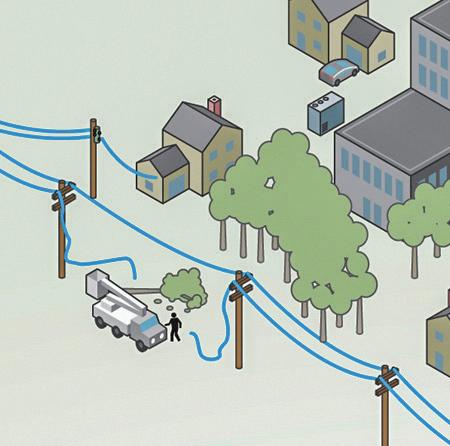
If local outages persist, supply lines—also called tap lines—are inspected. These lines deliver power to transformers mounted on poles or placed on pads for underground service outside businesses, schools and homes.

Each substation serves hundreds or thousands of members. When a major outage occurs, line crews inspect substations to determine if problems stem from transmission lines feeding into the substation, the substation itself or if problems exist down the line.

If your home remains without power, the service line between a transformer and your residence may need to be repaired. Remember to report any service disruption to your cooperative—as the informaton is helpful in narrowing down where there are problem areas.
Unfortunately, power outages do occur from time to time. It’s important to know how to keep your food safe during an outage. Use these tips from USDA to help minimize food loss and reduce risk of illness.
Keep the refrigerator and freezer doors closed!
Keep refrigerator at 40° or below. Freeze items like fresh meat and poultry that you won’t use immediately. Keep freezer set to 0° or below. Group frozen foods to help items stay colder longer.
If the doors stay closed during the length of the outage:
A full freezer will hold its temperature for 48 hours. 1 2
Check the temperature inside your refrigerator and/ or freezer.
If the temperatures are safe, the food should be safe to eat.
If you anticipate an extended power outage, buy dry or block ice to keep the fridge and/or freezer cold.
A refrigerator will keep food safe for four hours
that should be thrown out after an extended power outage:
Meat, poultry or seafood products
Milk, yogurt and other dairy products
Cooked or sliced produce
Eggs and egg products
Soft and shredded cheese
Opened baby formula
Dough and cooked pasta
Source: USDA














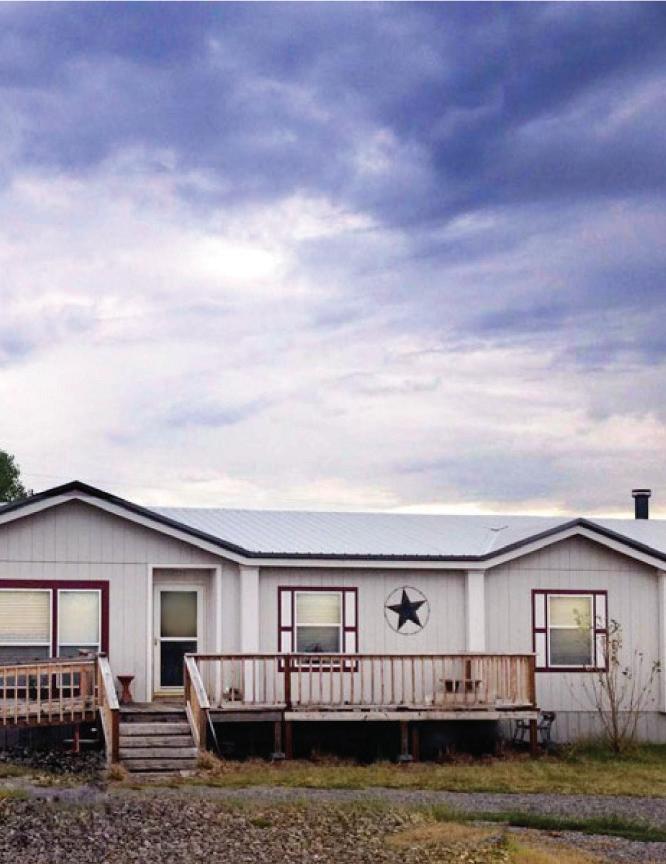














When temperatures soar in the summer, utility bills often do the same. Fortunately, there are several small ways to manage your energy use and keep your wallet cool.
Keep hot air from leaking into your home by sealing up cracks and openings. Add caulk or weatherstripping around doors and windows. Check attic insulation levels.
Close the blinds. Install energy efficient window coverings to prevent heat gain through your windows during the day.
Use fans when possible rather than increasing the air conditioning. Remember to turn fans off when you leave the room. Fans cool people, not rooms, by creating a wind chill effect, according to the Department of Energy.
Run large appliances like dishwashers, ovens and washing machines at night during off-peak times.
Set the thermostat to the highest temperature you find comfortable. Every degree of cooling increases usage by 6-8%. The smaller the difference between the indoor and outdoor temperatures, the lower your overall cooling bill will be.
Reducing your energy use during heat waves can also help the grid. When the temperature heats up, thousands of homes and businesses crank up their air conditioning. This puts a tremendous demand on the electrical grid. Similar to how running too many devices off of the same outlet in your home can trip a breaker, so too a heat wave induces power demand that might trigger a blackout.
Jeff Davis Electric Cooperative wants to be your partner in energy savings. Go to jdec.org to learn more ways to save.




























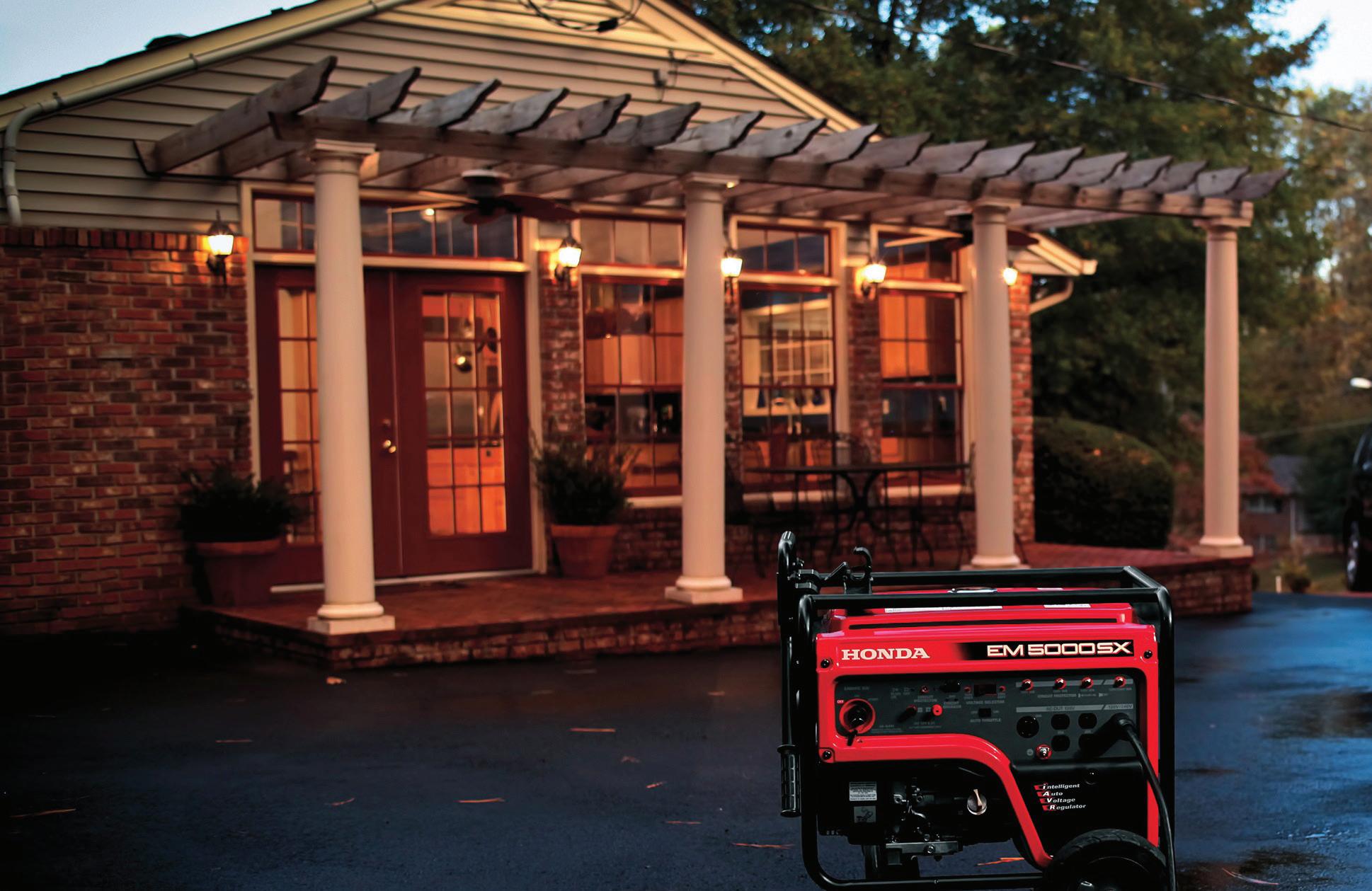


Storm season is upon us, which means greater potential for power outages. If you plan to use a portable generator in the event of an outage, make sure you use it safely.
With proper use and maintenance, portable generators can provide great convenience during an outage. However, generators used incorrectly can be hazardous.
In a 2022 report, the Consumer Product Safety Commission estimated 85 U.S. consumers die every year from carbon monoxide poisoning caused by gasolinepowered portable generators.
Here are safety tips to keep in mind when using portable generators:
• DO: Install backup CO alarms.
• DO: Keep children and pets away from portable generators at all times.
• DO: Position generators at least 25
feet outside the home, and away from doors, windows and vents that can allow CO to enter the home.
• DO: Ensure your generator is properly grounded. Use a portable ground fault circuit interrupter to prevent electric shock injuries.
• DO: Use three-pronged extension cords rated to handle the load of the generator. Inspect extension cords for cuts, frays or other damage before use.
• DON’T: Operate a generator inside your home or an enclosed (or partially enclosed) space. Generators produce deadly levels of CO.
• DON’T: Open windows or doors while the generator is running.
• DON’T: Rely on generators as a fulltime source of power. They should only be used temporarily or in emergency situations



to power essential equipment or appliances.
• DON’T: Overload generators. They should only be used to power essential equipment. Make sure your generator can handle the load of the items you plan to power.
• DON’T: Connect generators directly to household wiring unless you have an appropriate transfer switch installed. If a generator is connected to a home’s wiring without a transfer switch, power can backfeed along power lines and electrocute utility lineworkers making repairs.
While generators provide convenience during power outages, they can quickly become hazardous—even deadly—if improperly operated. Before you operate a portable generator, be sure to thoroughly read the owner’s manual for important safety information and tips.
Summer is on our doorstep, and the Jeff Davis Electric Cooperative team looks forward to the season’s activities like cooking out with family and friends, spending time on the water or at the beach, and simply slowing down a bit to enjoy life.
Unfortunately, summer can also create conditions for severe storms, so JDEC crews are always prepared to respond should power outages occur in our area. When severe storms cause power disruptions, our line crews take all necessary precautions before they get to work on any downed lines.
We encourage you to practice safety and preparedness to protect your family during storms and outages.
The Federal Emergency Management Agency recommends the steps below as a starting point for storm and disaster preparedness. Visit ready.gov for additional resources.
• Stock your pantry with a three-day supply of nonperishable food, including canned goods, energy bars, peanut butter, powdered milk, instant coffee and water.
• Confirm you have adequate sanitation and hygiene supplies including towelettes, soap, hand sanitizer, diapers and toiletries.
• Ensure your first-aid kit is stocked with pain relievers, bandages and other medical essentials, and make sure your prescriptions are current.
• Set aside basic household items you will need, including flashlights, batteries, a manual can opener, and a portable,
Follow these safety and preparation tips during spring and summer storm season.
Create an emergency kit with power outage essentials: batteries, power banks, flashlights, nonperishable foods, water, medical supplies and prescriptions.
Develop an emergency family plan with meeting points, communication methods and evacuation routes. Share your plan with all family members.
Monitor weather for important updates that could impact your emergency plan.
Ensure a safe shelter. Stay away from windows and doors. In tornadoes, move to a basement or an interior room without windows.
Use portable generators safely: operate outdoors in well-ventilated areas and on a flat, dry surface. Do not overload, and always read the operating manual before use.
Severe storms can bring down tree limbs and power lines. If you encounter a downed line, stay back. Assume a downed line is live and dangerous.
battery-powered radio or TV.
• Organize emergency supplies so they are easily accessible in one location.
In the event of a prolonged power outage, unplug major appliances, TVs, computers and other sensitive electronics. This will prevent damage from potential power surges and will help avoid overloading circuits during power restoration. That said, do leave one light on so you will know when power is restored.
If you plan to use a portable generator, make sure it’s rated to handle the amount of power you will need, and always review the manufacturer’s instructions to operate it safely.
Severe storms can bring down power lines. If you see a downed line, assume it’s energized. Never approach it, and never walk where power lines could be submerged in water.
Advance planning for emergencies can reduce stress and anxiety. It can also lessen the impact of the storm’s effects.
Listen to local news or a National Oceanic and Atmospheric Administration Weather Radio for emergency information. Check JDEC’s Facebook page for restoration updates.
Sign up for NOAA emergency alerts and warnings, and follow the co-op on Facebook for updates. If you experience an outage, don’t report it on Facebook. Call 800-256-5332 to let personnel know your power is out.
At JDEC, we recommend you make a plan today—because storm preparedness is always our best defense.
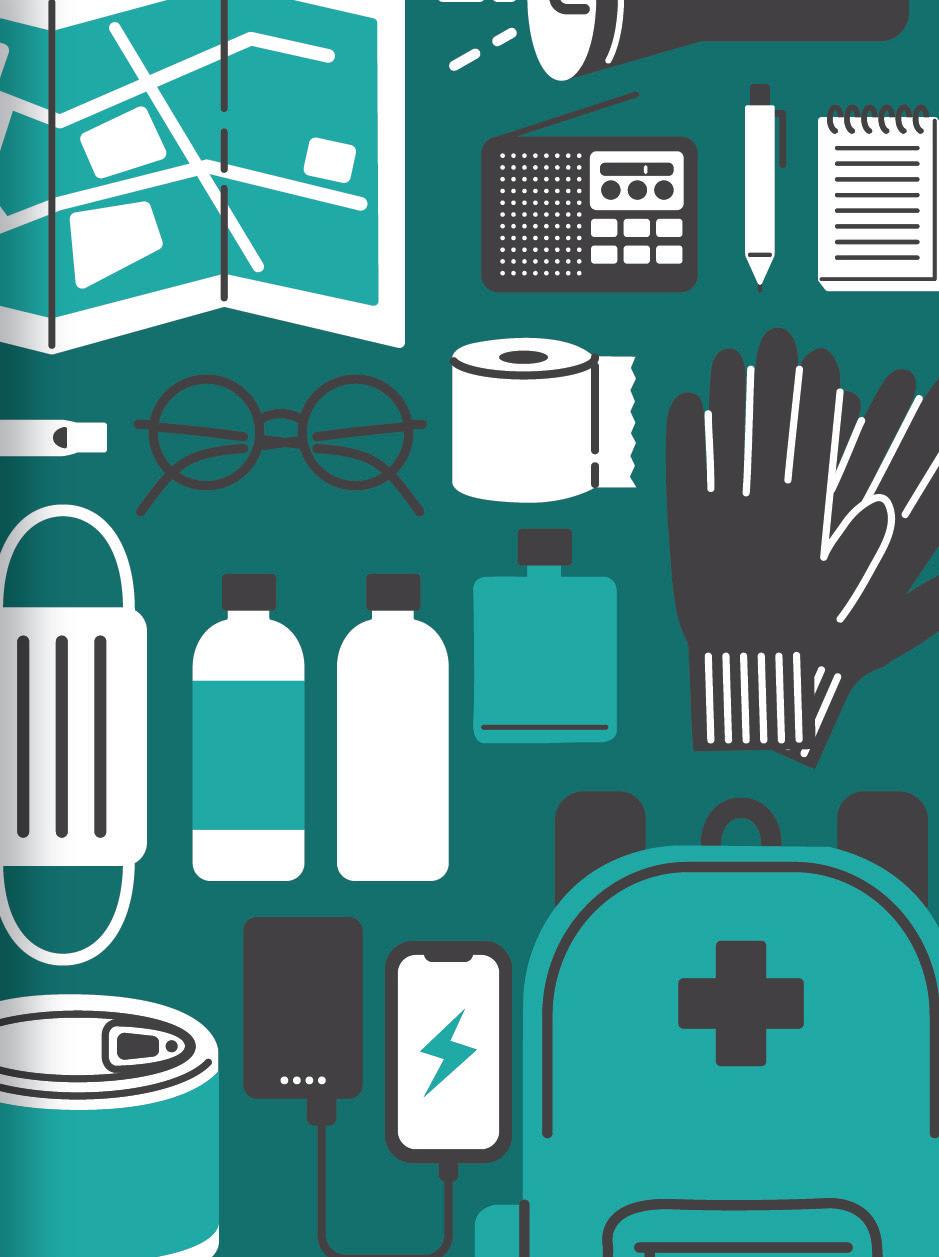
Hurricane season is in full swing. Check out these preparation tips to make sure co-op notifications can reach you and restoration personnel can access your service in the event of outages.
Call Jeff Davis Electric Cooperative at 800-256-5332 to report an outage. When severe weather causes power outages, employees of JDEC begin working immediately to restore service as quickly as possible.




For updates following a hurricane, like JDEC’s Facebook page or bookmark facebook.com/JeffDavisElectricCoop in your browser to view our page without an account. Updates will be posted regularly until power is retored.
If you have a gate, be sure we have your current gate code or have a JDEC lock on it. For prompt outage restoration and access for critical maintenance, co-op crews need access at all times as indicated in our membership agreement. Access issues increase co-op costs by unnecessarily sending maintenance or restoration personnel to locations multiple times. Call your nearest JDEC office to provide a code or get a lock.
If your phone number or email address has changed, be sure to update our member services department. In the event of an emergency, planned outage or other important matters, we want to keep you informed.
Call the Jennings office at 337-824-4330 or the Hackett office at 337-598-5700 to update your account.
Outages that occur in severe weather, or those that last for an extended period of time, can place a heavy burden on the system at the moment power is restored. To prevent an overload on the system and possibly another outage, turn off every inside light except one, turn off your electric water heater if the outage lasts over 60 minutes and turn off or unplug all unnecessary appliances.


By Christina Sawyer
When it comes to maintaining safety and preventing service interruptions, your electric utility is committed to doing its part. That includes performing dig locates for consumers who call the 811 Call Before You Dig service. But safety doesn’t stop at the locate. It’s crucial for everyone take personal responsibility to dig carefully, remain cautious and contact your co-op immediately if any lines are accidentally hit. Remember, even with the best technology and the most diligent efforts, some risks simply cannot be predicted.
The first step in any digging project—whether you’re planting a tree, installing a fence or setting up a mailbox—is to call 811. This free service alerts utilities in your area to mark underground lines with flags, paint or stakes. This crucial step helps you avoid hitting underground lines and protects yourself, your neighbors and the infrastructure that keeps our communities powered.
The process is simple: Call 811 or submit a request online at least two business days before you plan to dig. After that, a representatives visits your site and marks the approximate location of underground lines. Each type of utility line is marked with a different color—electric lines are typically marked with red. This visual guide is your map to digging safely.
Even after a locate, the work isn’t over. The lines marked on your property are approximate. While the markings give a general idea of where the underground lines lay, there is still room for error. That’s why we urge you to dig with care, especially when you’re within a few feet of any markers.
Hand tools, such as a shovel, should be used within this area. This might slow down your project, but it significantly reduces the risk of accidentally hitting a utility line. If you’re using heavy equipment, be extra cautious and consider using spotters or soft digging techniques to further minimize the risk.
Underground utility lines can shift over time due to erosion,

temperature changes and soil movement. Even with a locate, you could encounter lines in unexpected places. Additionally, lines may not be as deep as expected due to changes in the landscape over the years, such as soil erosion or excavation work done before the current standards were enacted.
Furthermore, not all lines are owned or maintained by your local utilities. Private lines, such as those running from the meter to your home or shed, might not be marked during a locate. The owner is responsible for knowing the location of these lines and digging carefully around them.
When you call 811, state-of-the-art mapping and detection tools are used to pinpoint the location of underground lines. These maps are developed based on detailed records and regular updates, but they’re only as good as the information available. That’s why digging carefully is essential, even when you think you know where every line is located.
The Responsibility of Digging
As a member of a community, you share the responsibility of maintaining community safety. Digging is no small task. It requires awareness, caution and a willingness to follow the right procedures. Should you hit a power line or any other utility line while digging, cease all work and contact your co-op immediately. Do not attempt to repair or inspect the damage yourself. We have trained personnel and specialized equipment to handle the situation safely.
Inspiring a Culture of Safety
Safety is not just the responsibility of your cooperative; it’s a shared duty each of us carries.
When you plan your next digging project, remember a little extra caution can prevent accidents, outages and even save lives. By calling 811, following the locate markings and digging carefully, you contribute to a safer, more reliable community for everyone.
Let’s work together to keep our power flowing and our neighborhoods safe. Dig smart, dig safe and always reach out if you’re unsure. We’re here to help you every step of the way.


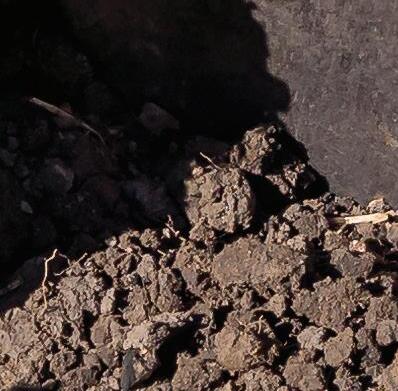

When you call 811, a representative visits your site to mark the approximate location of underground infrastructure, such as buried gas and electric lines. ADOBE
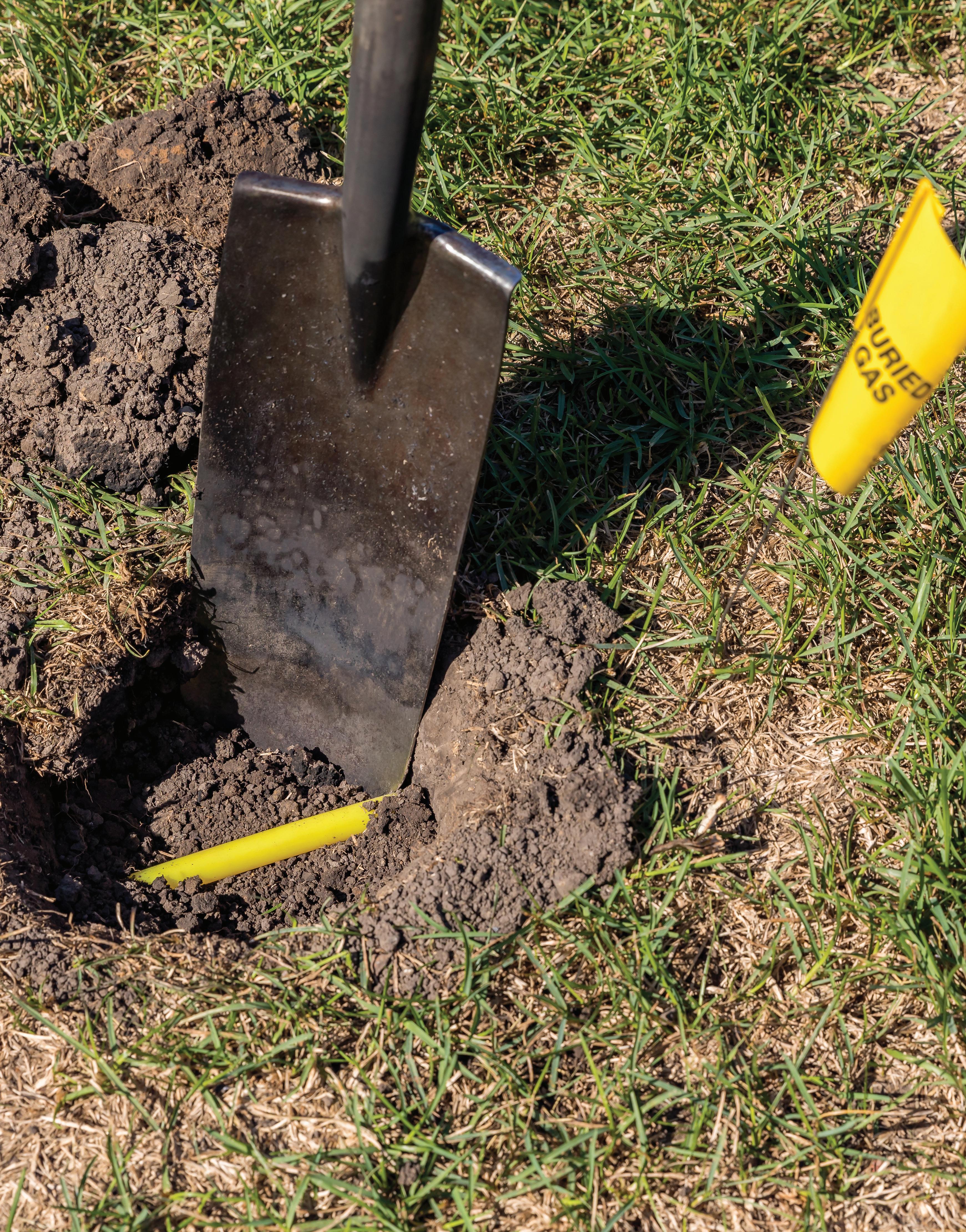



If you suspect you’re dealing with a utility scam, it’s crucial to slow down and take your time before taking any action.
Scammers will often pressure you to make quick decisions or immediate payments. Instead, take the time to verify the legitimacy of the communication by contacting your cooperative directly.
Use a phone number from a reliable source, such as your bill or the co-op’s website. Taking this simple step can help protect you from falling victim to utility scams.
Source: Utilities United Against Scams